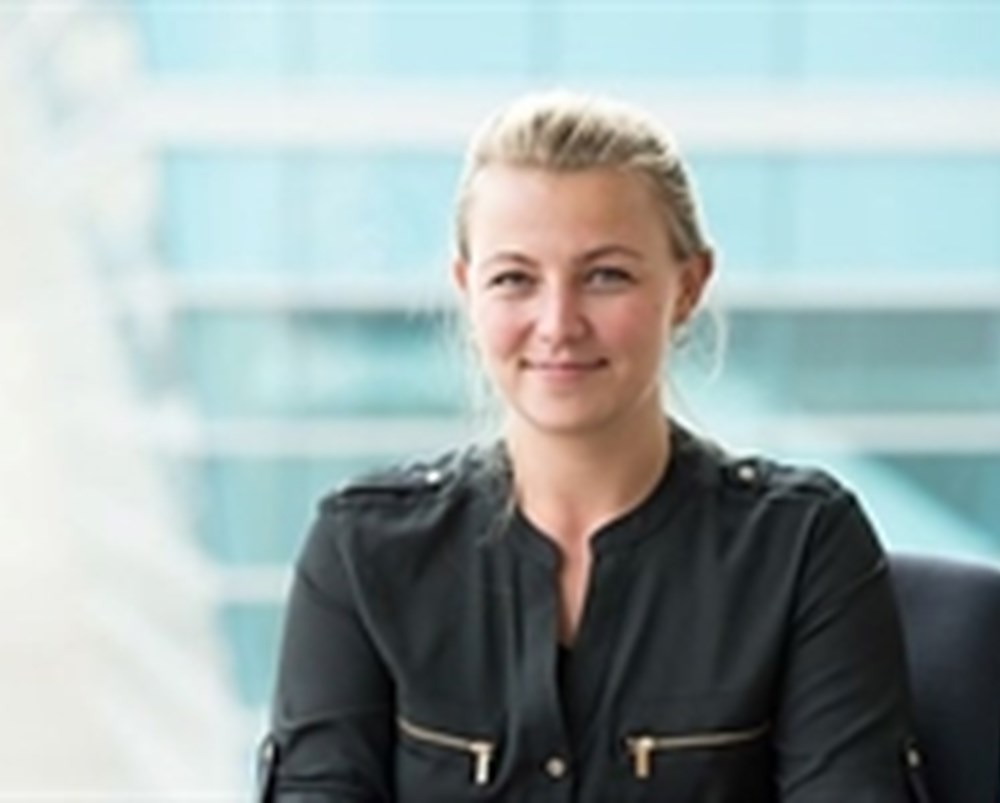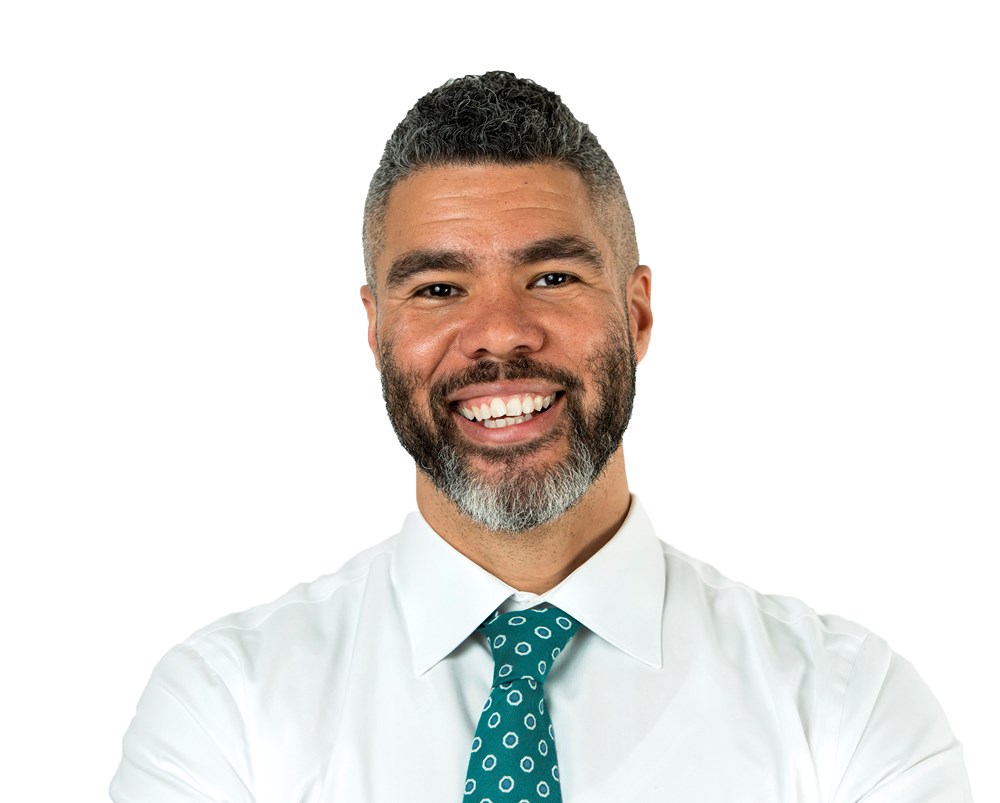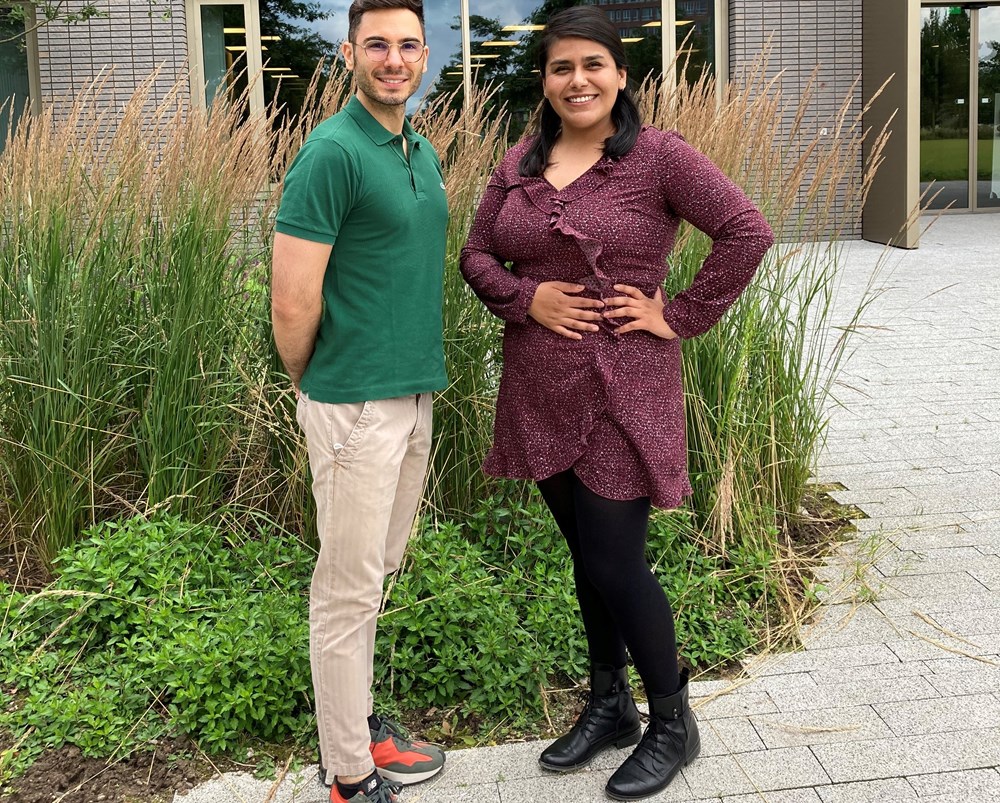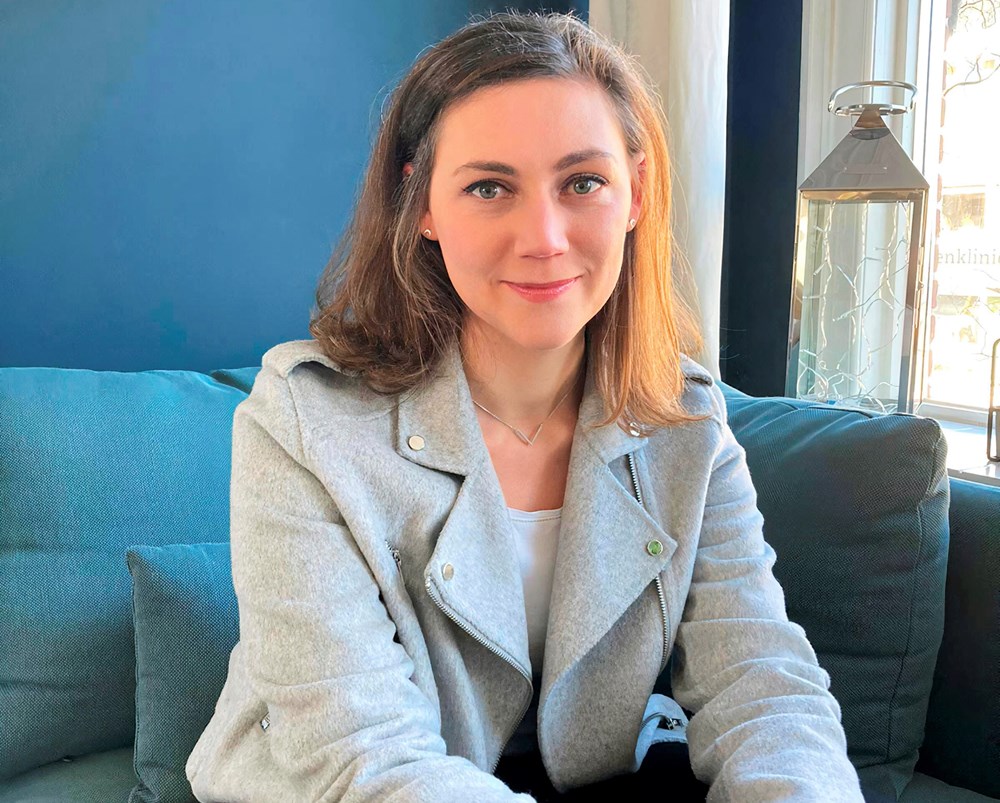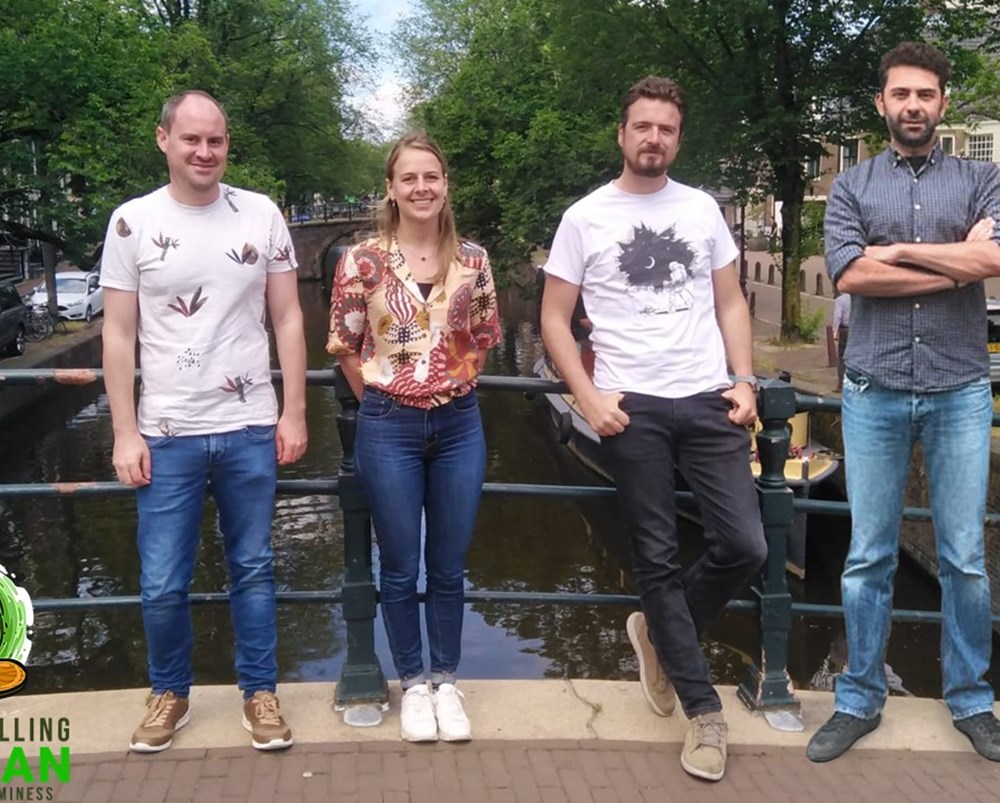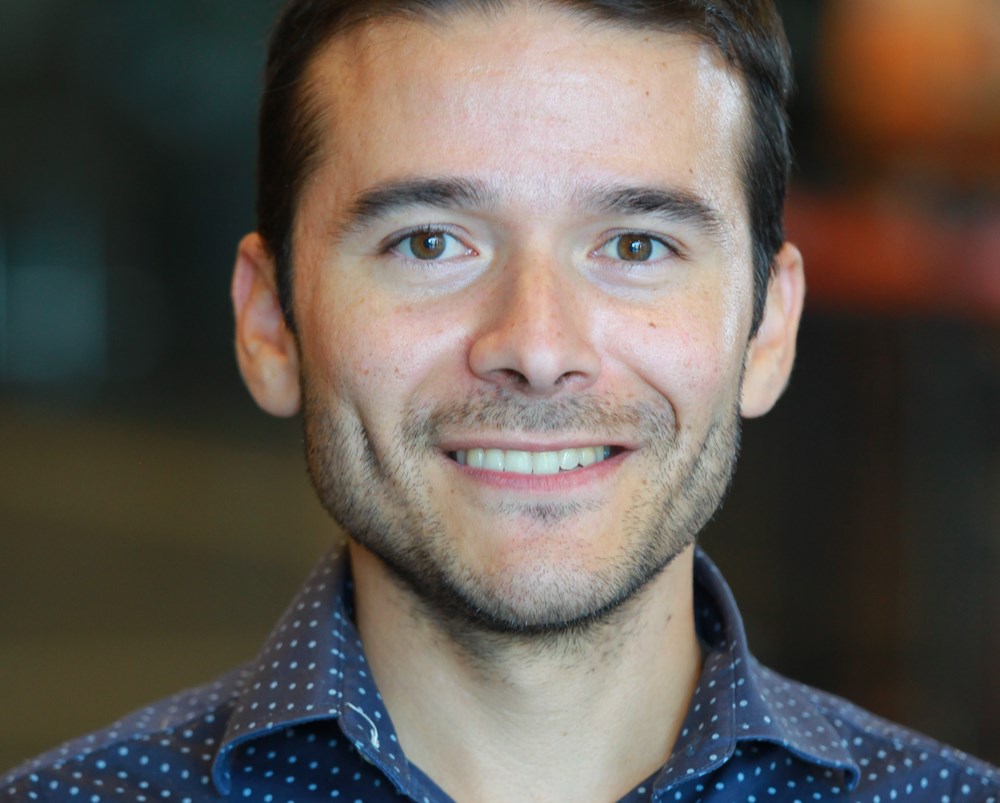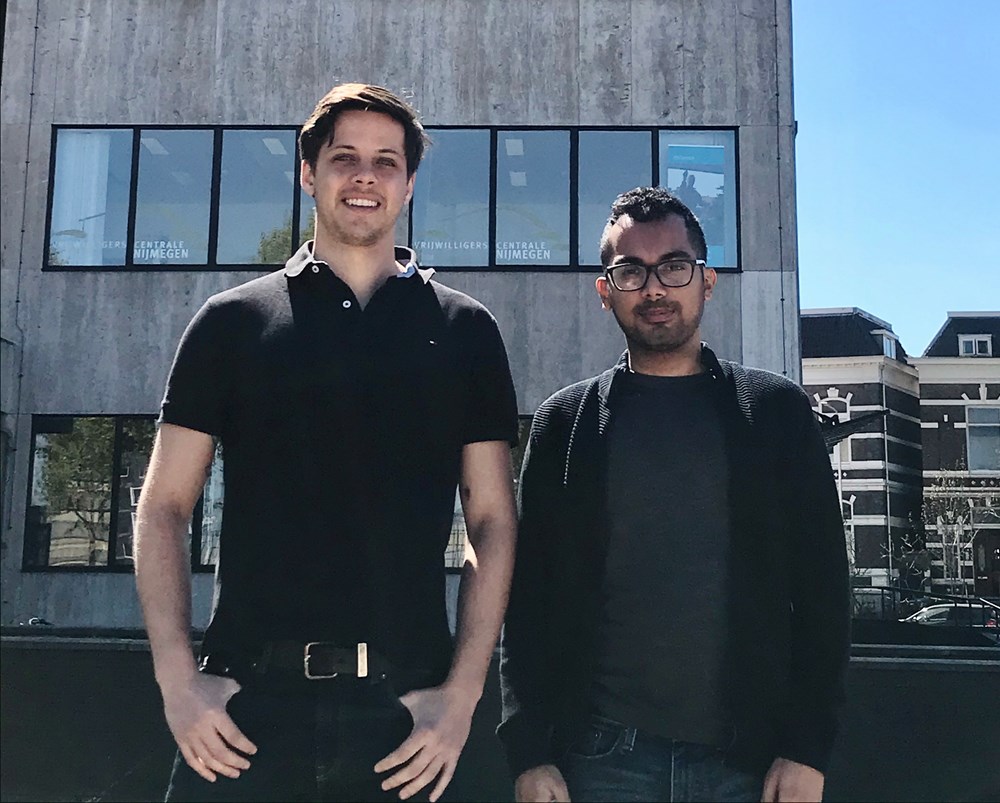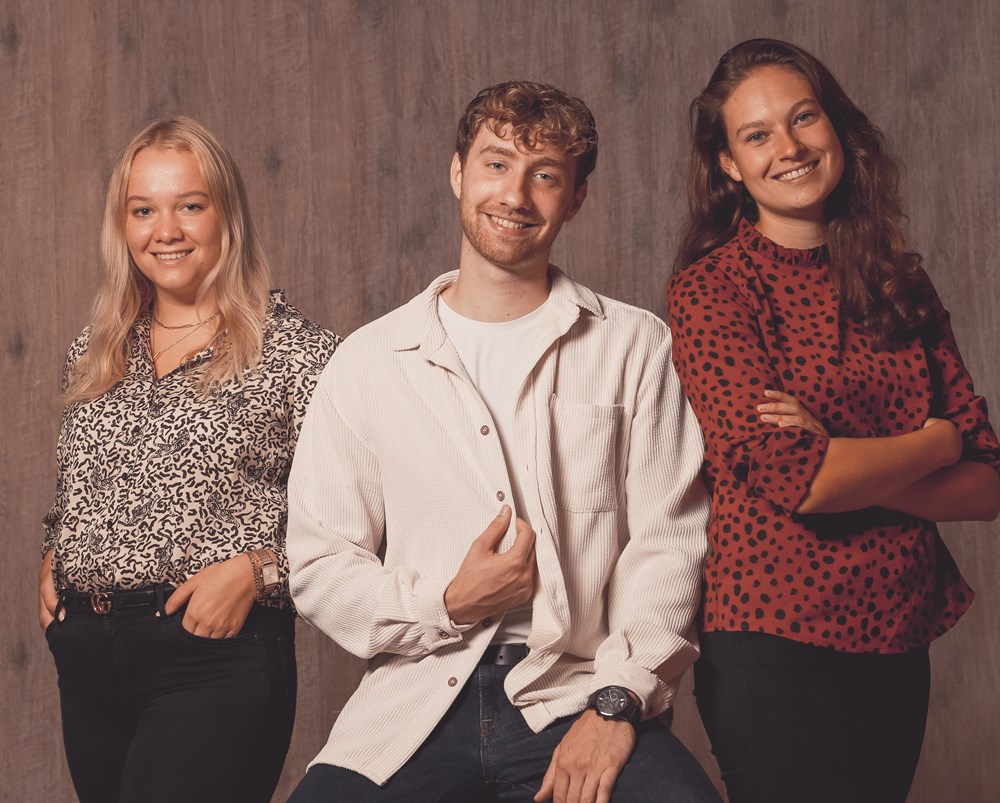Life as an entrepreneur - Richard Hampson
Richard and his team started their business, they say, by a stroke of luck. They were examining how to strengthen intercellular cement and came to the exciting scientific discovery that quercetin, a well-known food ingredient, had the unsuspected property of helping people with various health issues.
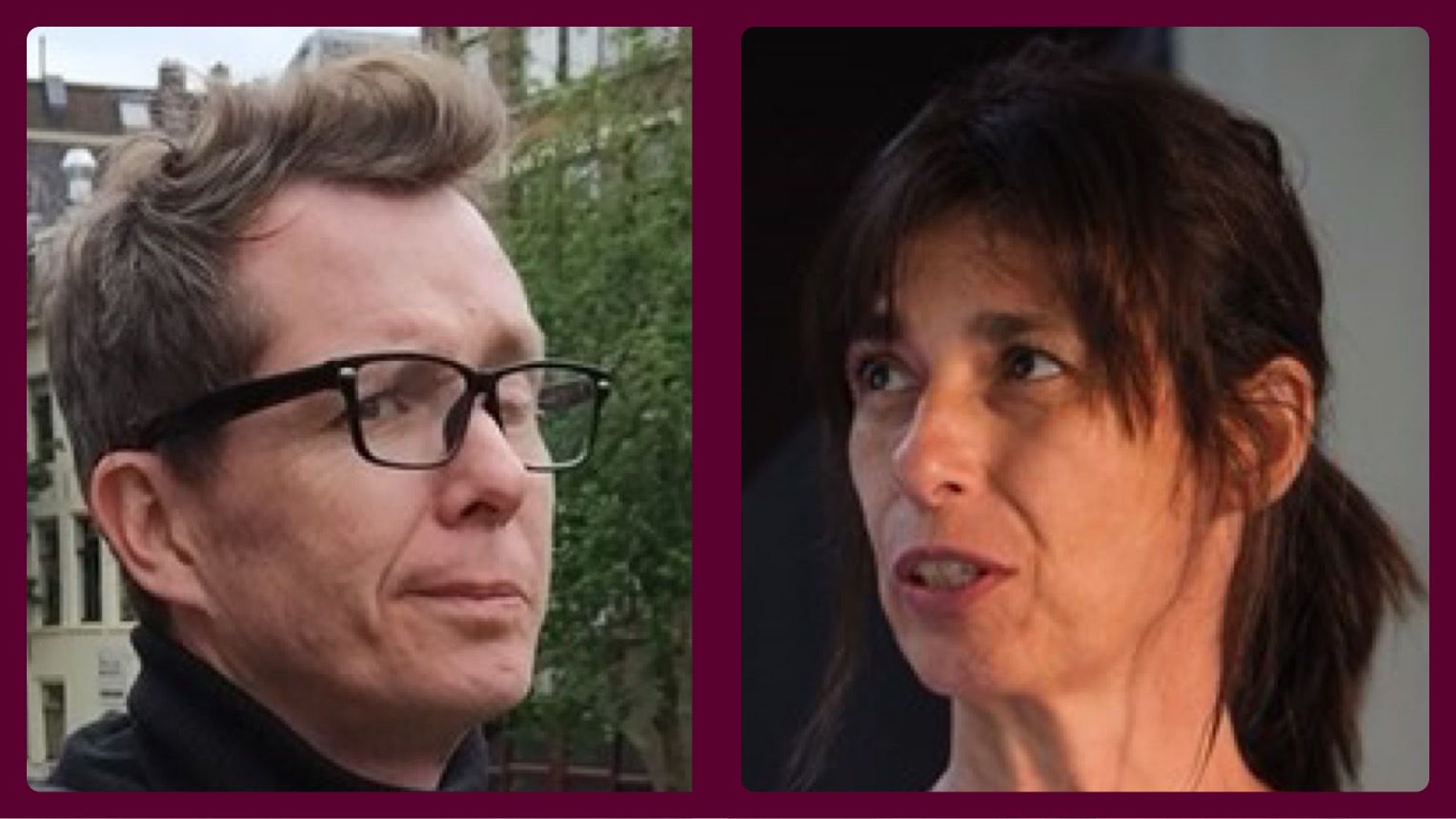
Richard Hampson & Luciana Vieira de Moraes
Restoring health
Richard and his team want to replace traditional medicine with food products. “People prefer options that are natural and have no side effects. So that’s what we make. Our first product, benescoTM, now helps people who suffer from heartburn by naturally strengthening their esophagus. The components of the product can organically be found in a healthy diet, but when ingesting food, they pass too quickly from the mouth through the esophagus and into the stomach to have any effect. BenescoTM, on the other hand, takes up to five minutes to dissolve in the mouth: the saliva delivers the active ingredient to the esophagus making it much more effective,” Richard explains.
Pregnant women in particular seem to benefit from benescoTM. “Up-to eight out of ten pregnant women suffer from heartburn. Not only is this very unpleasant, it’s stressful and causes sleepless nights. Pregnant women like the idea of a safe and natural product to manage their heartburn symptoms.”
Hub for food innovation
The more research Richard and his team did, the more they realized they were making a food product rather than medicine. That’s why they started their business in the Netherlands. “Wageningen is the hub for food innovation. We have a great network of people in this region: our distributor is located nearby, we have a patent attorney that knows everything about food, and there are a lot of startups in Wageningen that can help us with things like legislation, for example,” Richard explains.
Other professionals also helped Epinutra improve their product: “Our first product had a lot of ingredients, making the recipe insanely complicated. With the input of specialists, we were able to reconfigure the formula and remove the non-essentials. The result is a much more elegant product, using only four ingredients.”
The help is very much needed, because Richard and his team are scientists, not nutritionists. “We basically know nothing about food. That’s why we contacted experts who know a lot about the industry. We have a pretty big network in Wageningen, partly because of Start Life. They helped us get in touch with the right people and have close ties with relevant investors. This made the whole process a lot easier for us.”
Bumps, blips, and blunders
Richard describes his journey as an entrepreneur as an upward trajectory with bumps, blips, and blunders along the way. “Just like every start-up, really. Some days are good, some days are bad. We’re a small company, so if a negotiation doesn’t work out, we don’t have a lot of other jobs lying around. We’re heading in the right direction though. We really see Epinutra as an ongoing project. Plus, our team is made up of a strong group of people: we have different areas of expertise, but we’re also very understanding and forgiving. When something doesn’t go well, we regroup, learn from the issue or mistake and move on. We keep on learning every day.”
One of the things Richard and his team learned as they were developing their product was that they had to listen to their consumers’ needs. “This is a very simple example: scientifically, it’s best to take our product after dinner; however, most people suffer from heartburn at night! So our product works, but we gave people counterintuitive instructions. That’s how we learn to better help consumers: by letting them teach us.” According to Richard, this is the biggest difference between working in science and running a business: “We know the science behind benescoTM, but we know less about making a product. Listening is the most important lesson we learned.”
Future plans
Overall, Richard is very happy with his business. “I find it surprising how much I like it when people come to me with compliments or questions. It gives me the opportunity to tell them something about the interesting things I get to do every day. And it’s great to hear success stories from people we helped. Being able to really aid someone is fantastic.” Richard is thinking about expanding his business. “We’re currently focusing on the Netherlands, because of the easy distribution: if people order the product today, they’ll have it delivered to them the next morning. In countries like Germany, that’s just not possible for small companies like us.”
Their target audience, pregnant women, is another reason they chose the Netherlands. “It’s easier to reach them in the Netherlands than it is in southern Europe. People there don’t have any comprehensive websites offering information and advice to pregnant women. Instead, they turn to their physicians, making it more difficult for us to reach them. For now, we have the Netherlands as our base, but we hope to expand in the future. That way, we can help as many people as possible.”
StartLife Wageningen
In this blog series, The Life Net and StartLife Wageningen like to show what an attractive region Wageningen is to start and establish as an entrepreneur. It spotlights various internationals or companies that attract internationals. They like to share their inspiring story about how they started and grew with their business. Check StartLife Wageningen for how they help entrepreneurs.

